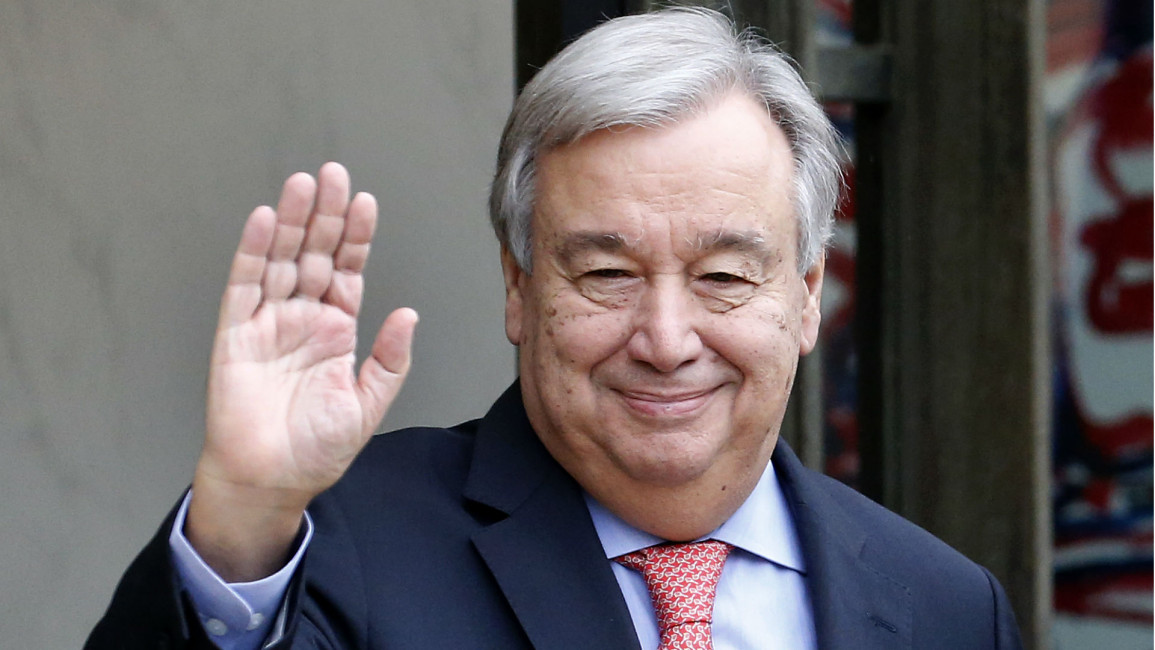Yemen's Hodeida port destruction would be 'catastrophic', says Guterres
UN Secretary General Antonio Guterres warned that the destruction of the Yemeni port of Hodeida, a vital lifeline for millions of starving civilians, could trigger a "catastrophic" situation.
Medics and military sources say at least 149 people have been killed in 24 hours of heavy clashes as government loyalists, backed by a Saudi-led coalition, fight to oust Houthi rebels from the Red Sea city.
"If the port at Hodeida is destroyed, that could create an absolutely catastrophic situation," Guterres told France Inter radio on Monday during a trip to Paris.
'Disaster'
Yemen is already facing a "disastrous" humanitarian situation, Guterres said, adding: "The hostilities must stop."
The Saudi-led coalition currently "appears determined to take Hodeida, which in my opinion will still not allow the real start of a political solution", Guterres said.
"The fighting must stop, a political debate must begin, and we must prepare a massive humanitarian response to avoid the worst next year."
Guterres said there was "an opportunity to make the direct parties in the conflict - the Houthis, the government, the UAE and Saudi Arabia - understand that this is ultimately a war that no one is winning".
He added that there was "a consensus, between the United States, Russia, Europe and many states in the region, that it is finally time to end this conflict".
"There is already a framework for a solution which has been presented to the different parties," he said.
"The early reaction has been relatively positive but in my opinion things are frozen due to the Hodeida situation."
Rights groups have expressed concern at the humanitarian toll the Hodeida operation is taking.
"I visited today al-Amal hospital. I saw one child, he is a teenager, he’s 15 years old. He’s totally paralysed because three days ago he was walking in the street and a stray bullet penetrated his neck and cut his spinal cord. He’s totally paralysed," Save the Children's Field Coordinator on the ground, Dr Mariam Aldogani said.
International pressure
The Saudi-led alliance has come under intense international pressure to end the conflict in Yemen, particularly following the killing of Saudi journalist Jamal Khashoggi.
Khashoggi, a Washington Post columnist killed in his country's consulate in Istanbul on 2 October, was an ardent critic of Prince Mohammed, who has spearheaded the kingdom's controversial role in the Yemen war.
Multiple countries, including Germany and Norway, have announced the suspension of arms sales to Saudi Arabia after Khashoggi's killing.
The United Nations' Yemen envoy, Martin Griffiths, is pushing for peace talks between the Houthis and Saudi-backed government by the end of the year. Multiple rounds of UN-brokered negotiations have failed to find a solution to the Yemen conflict.
The US, which for years provided military training and aerial refueling for the Saudi-led coalition, on Saturday announced it would end its inflight refueling support for the alliance.
The coalition has been blacklisted by the UN for the killing and maiming of children, particularly in air raids on rebel-held territory.
The alliance accuses Iran of smuggling arms to the Houthis through the Hodeida port. Tehran denies the charges.
The World Health Organisation estimates nearly 10,000 people have been killed in the Yemen war since 2015. But rights groups believe the toll may be five times as high.



